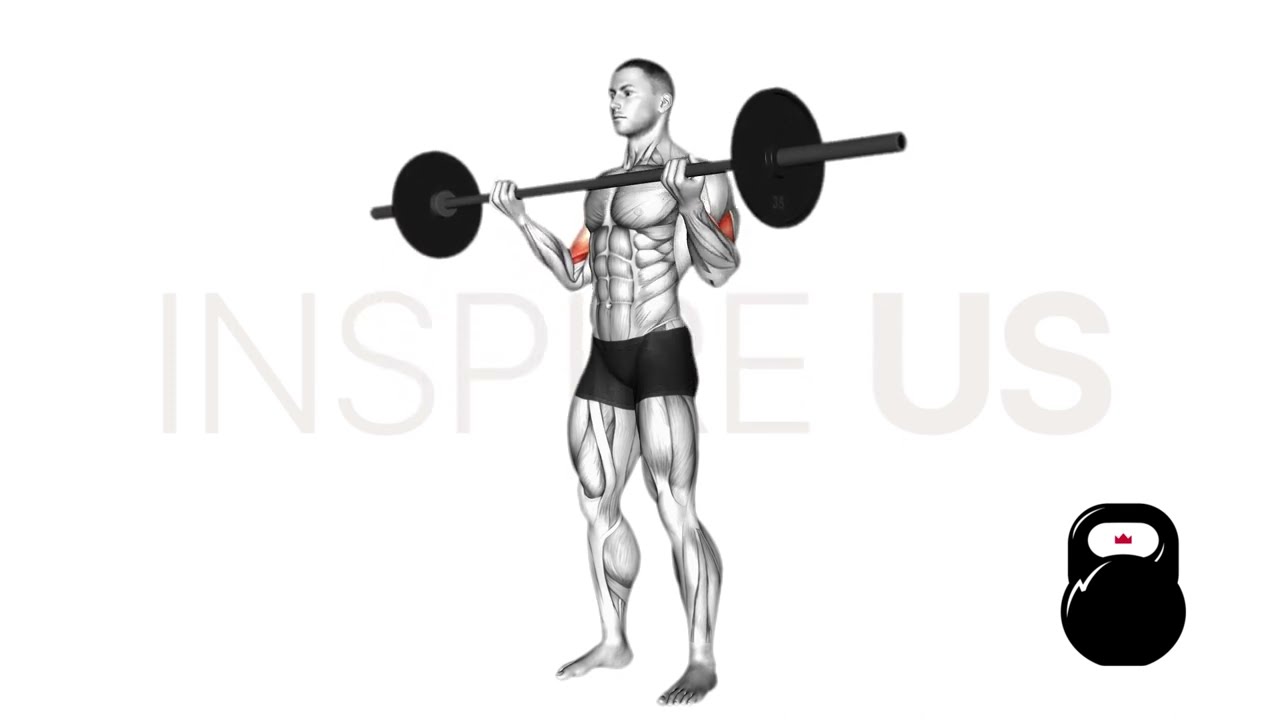Wide Grip Barbell Curl: Benefits, Muscles Worked, and More
Practically all weightlifters are familiar with the classic barbell curl - but what some are unaware of is that it may be taken a step further by simply altering the distance between their hands.
The wide grip barbell curl is an accessory movement primarily employed to target the biceps brachii in a manner that emphasizes the inner or short head of the biceps.
To learn how best to perform it and take advantage of its many benefits, continue reading.
But if you’re short on time, the rundown is that the wide grip barbell curl is simply a conventional barbell bicep curl with the hands set further apart, shifting more stimuli onto the inner head of the biceps and thereby building greater muscle mass therein.
What are Wide Grip Barbell Curls?
In a more technical sense, the wide grip barbell curl is considered to be a single-joint bilateral isolation exercise, often performed as an accessory movement by bodybuilders and athletes for the purposes of strengthening the biceps brachii.
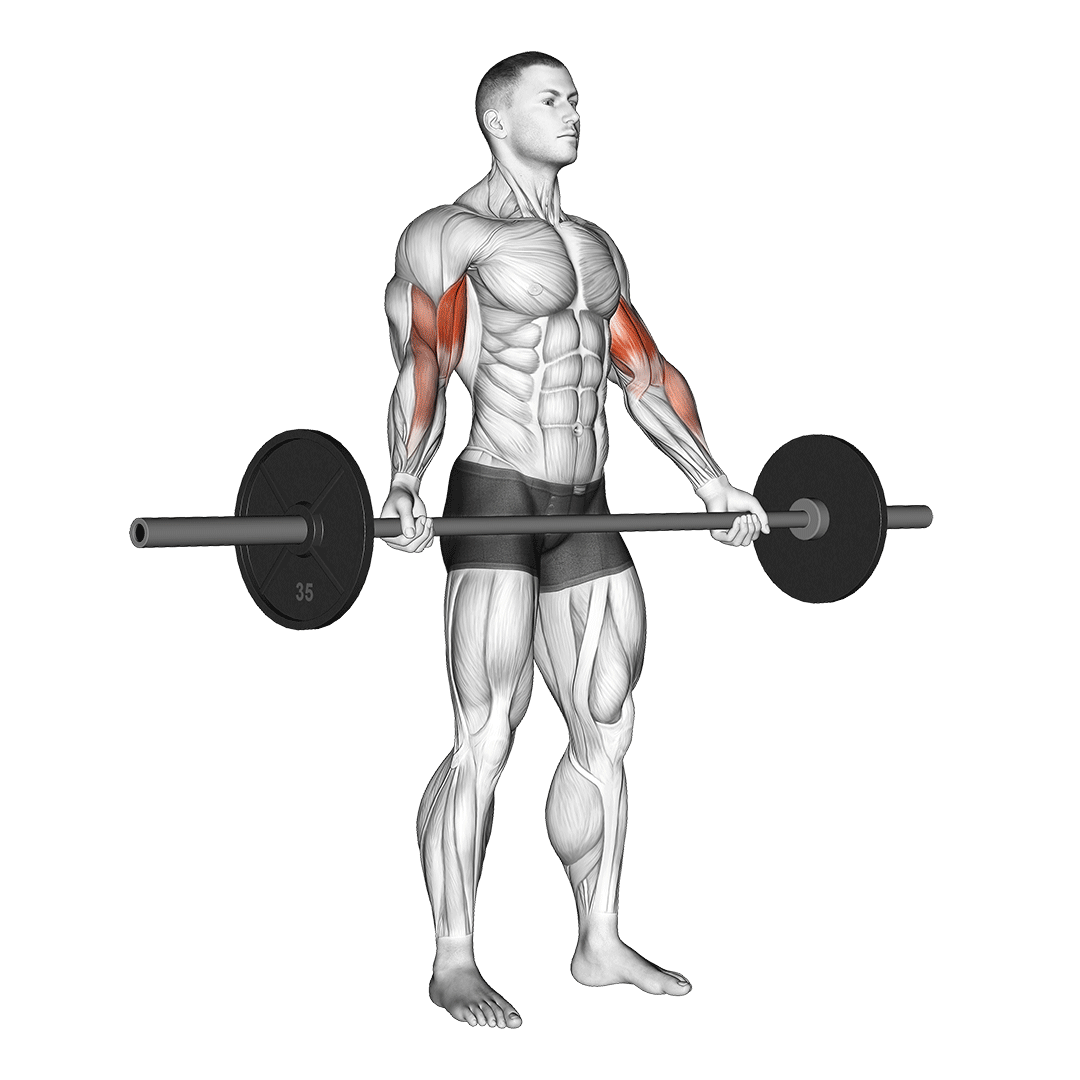
The wide grip barbell curl is frequently programmed for high amounts of volume per set and a relatively low amount of weight, and will generally be placed during the latter portion of a workout session so as to avoid prematurely fatiguing the biceps.
As a bicep curl variation that places greater emphasis on the inner head of the muscle group, lifters who substitute conventional barbell curls with this particular variant do so because they believe the short head of their biceps is lagging behind the outer head - something that occurs due to excessive volume of close grip elbow flexion exercises like chin-ups or cable rows.
Who Should Do Wide Grip Barbell Curls?
Wide grip barbell curls are relatively simplistic in form, and as such are accessible to even novice level exercisers provided that a reasonable amount of weight is used.
How to do Wide Grip Barbell Curls
To perform a repetition of wide grip barbell curls, the lifter will stand upright with a loaded barbell held at arm's length, their hands in a supinated grip and the core braced so as to avoid bending of the back.
The hands should be set wider than shoulder-width apart, in contrast to conventional barbell curls where the hands are at shoulder-width or slightly narrower.
Then, initiating flexion at the elbows but ensuring they do not move away from the torso, the lifter will draw the barbell upwards until it is at approximately shoulder-height.
From this point, the lifter will slowly reverse the motion and return the barbell back to its original position in a controlled manner - thereby completing the repetition.
What Muscles do Wide Grip Barbell Curls Work?
Wide grip barbell curls are an isolation exercise, meaning that only one muscle group is actually worked in a dynamic manner; the biceps brachii.
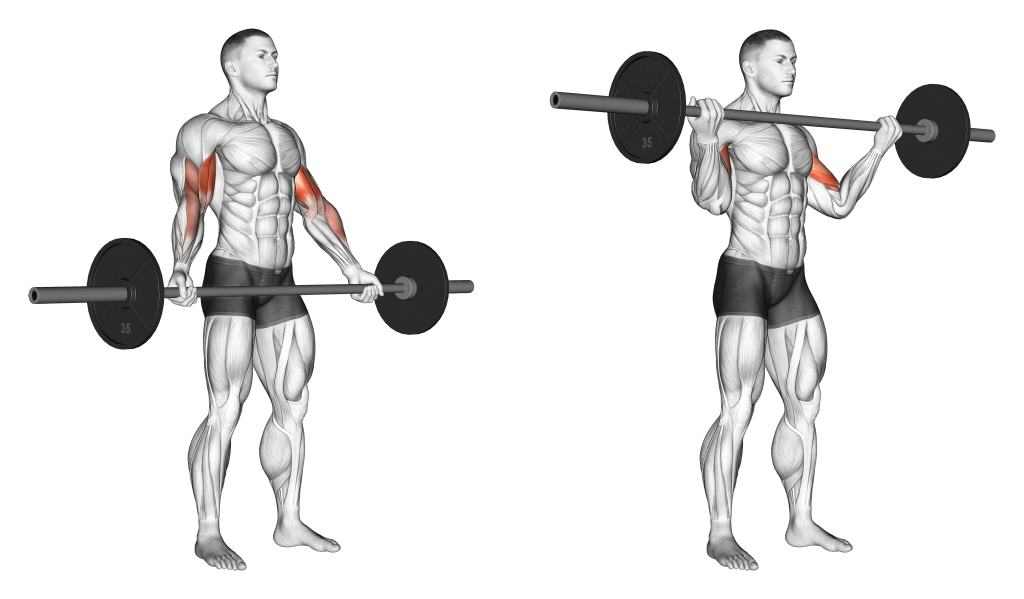
As was mentioned previously in this article, it is the inner head of the biceps that are targeted to a greater extent, and as such is the main focus of the exercise.
Why Does Using a Wide Grip Focus on the Short Head?
The reason why wide grip curls emphasize the short head of the biceps is simple; the wider the grip along the bar, the longer the length to which the inner bicep head is stretched.
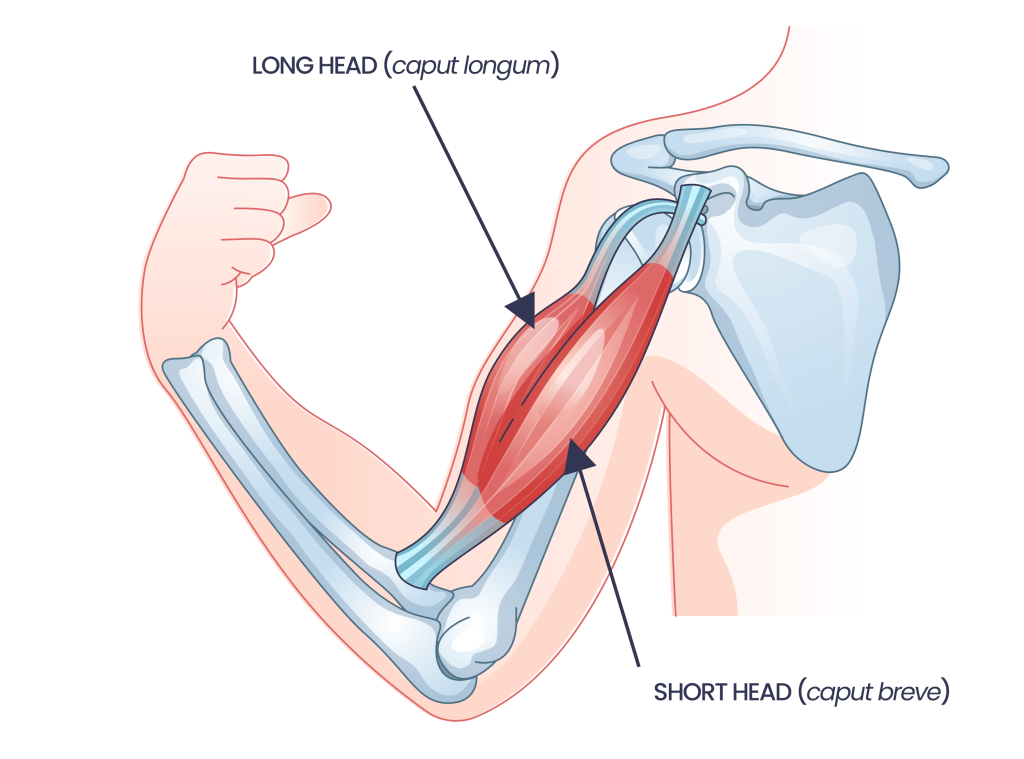
This is known as a range of motion (ROM), and goes hand-in-hand with time under tension as the muscle will need to contract or shorten for a longer period before reaching the opposite end of its ROM.
As such, the fact that the short head must lengthen to a further degree than with conventional curls means that it will also be developed to a greater degree by the wide grip variation.
What are the Benefits of Wide Grip Barbell Curls?
Not counting the usual benefits of participating in rigorous exercise, lifters will find that regularly performing wide grip curls will also help them achieve a certain few benefits that are not present with most other exercises.
Excellent for Balancing Biceps Mass
Because the majority of compound exercises tend to target the long or outer head of the biceps brachii, lifters wishing to perfect the appearance of their biceps may find that their short or inner head is lagging behind its counterpart.
The wide grip barbell curl offers a ready and easy solution to this physique issue, and may simply be tacked onto the end of a pull or back-and-biceps workout so as to better balance out the two heads of the biceps brachii.
Heavier than Narrow Grip Barbell Curls
For lifters who find themselves regularly performing the narrow grip barbell curl, switching to wide grip barbell curls instead can help lift more weight.
This benefit is a result of two factors:
- A relatively shorter range of motion as the bar needs to travel a smaller distance to reach the apex of the repetition.
- The lifter can better recruit their forearms to a certain extent.
Keep in mind that this doesn’t mean lifters should perform the wide grip barbell curl as heavy as they can, only that the opportunity for greater resistance on the biceps can be found by switching to a wider grip.
Reinforces Elbow Flexion and Shoulder Stabilization Biomechanics
The biceps brachii’s primary mechanical function is to produce forearm and elbow flexion - or what is otherwise known as curling the arm inwards (pictured below).
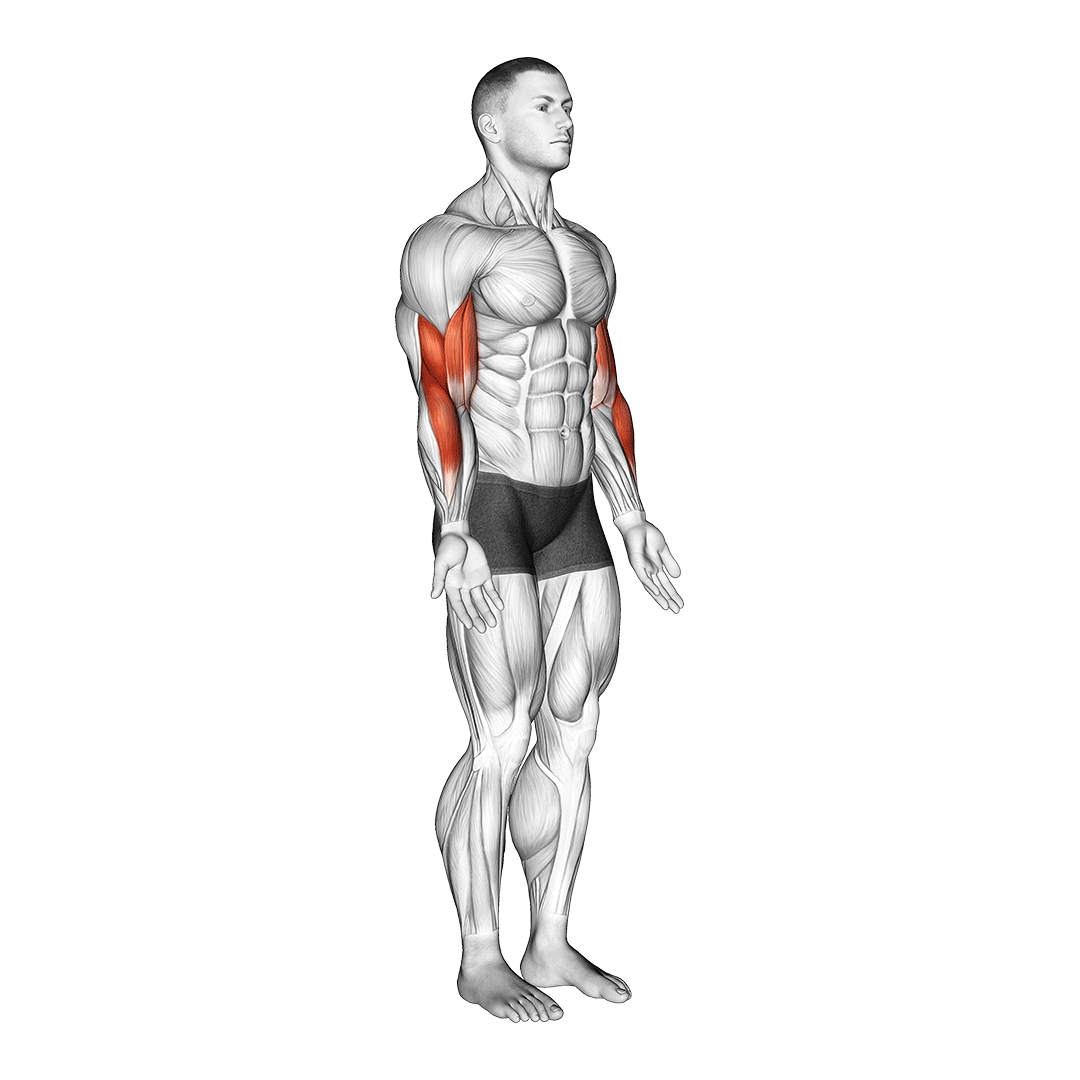
As such, it should be no surprise that regularly performing exercises that strengthen the biceps will also strengthen any relevant mechanics associated with them.
Furthermore, the short head of the biceps also aids in stabilization of the shoulder joint during the execution of certain biomechanics, therein furthering the usefulness of the wide grip curl as a biomechanical training tool.
Excellent for Bodybuilders and Fitness Models
The double front bicep pose is iconic, even among individuals who do not participate in resistance training. During competitive bodybuilding events or fitness-centered photoshoots, the inner head of the biceps will often make a prominent display due to their marked appearance when flexed.
As such, any aspiring bodybuilder or fitness model will wish to include the wide grip barbell curl into their training routine so as to attain a more muscular appearance of the arms.
Common Wide Grip Barbell Curl Mistakes
Though the wide grip barbell curl is as simple an exercise as they come, there are nonetheless a few common mistakes to look out for so as to create a more efficient and safe workout.
Swinging the Weight
Just as is the case with any other form of curl, swinging the barbell during wide grip curls will not only greatly reduce the effectiveness of the exercise, but also potentially injure the lifter’s biceps, shoulders or lower back as they do so.
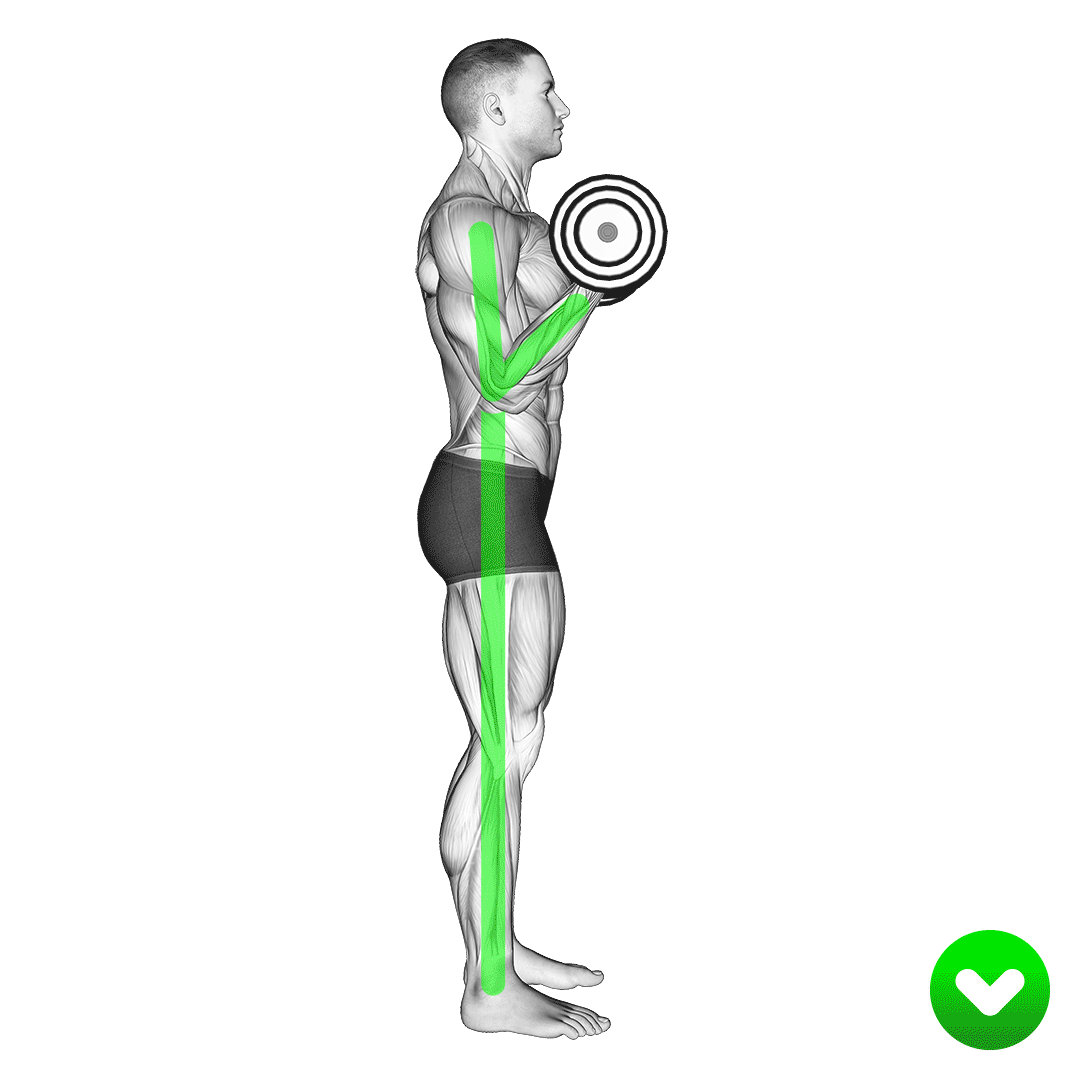
Each repetition of the wide grip barbell curl should be performed in a slow and controlled manner, with the elbows, shoulders and the rest of the torso remaining relatively stationary as they do so.
Poor Range of Motion
A full barbell curl should begin with the arms at full extension and end with the barbell being parallel with the shoulders at the highest point.
Failing to complete this entire range can reduce the effectiveness of the exercise, robbing the biceps of the time under tension and contraction needed to induce muscular hypertrophy.
For the best results, it is important to ensure that each repetition is performed slowly, and with the entire range being completed.
Bending the Wrists
Even if the hands are placed wider than is the case with conventional curls, the wrists should nonetheless remain in as neutral a position as possible.
This is especially the case when curling straight barbells, of which may result in discomfort or impingement if the wrists are bending in a particularly excessive fashion.
Detaching the Elbows or Widening Them
Although lifters may be tempted to do so, it is best to keep the elbows as close to the sides of the torso as possible - and to ensure that they remain stationary throughout the repetition.
This form error is particularly common with the wide grip curl, as the forearms will be at a more outward angle to the elbows and as such lifters with poor forearm and wrist mobility may feel some strain during the latter part of the exercise.
In order to keep the focus of the exercise on the biceps and to avoid placing unneeded stress on the forearms, the elbows should remain at the sides of the torso throughout each repetition.
Wide Grip Barbell Curl Variations and Alternatives
If the lifter finds the wide grip barbell curl to be uncomfortable or otherwise unsuitable for their tastes, there are a few further curl variations that can act as a potential substitute in their training program.
1. EZ-Bar Wide Grip Curls
In cases where the use of a straight barbell causes wrist pain or difficulty in adhering to proper form, the lifter may instead perform the exercise through the use of an EZ-barbell.
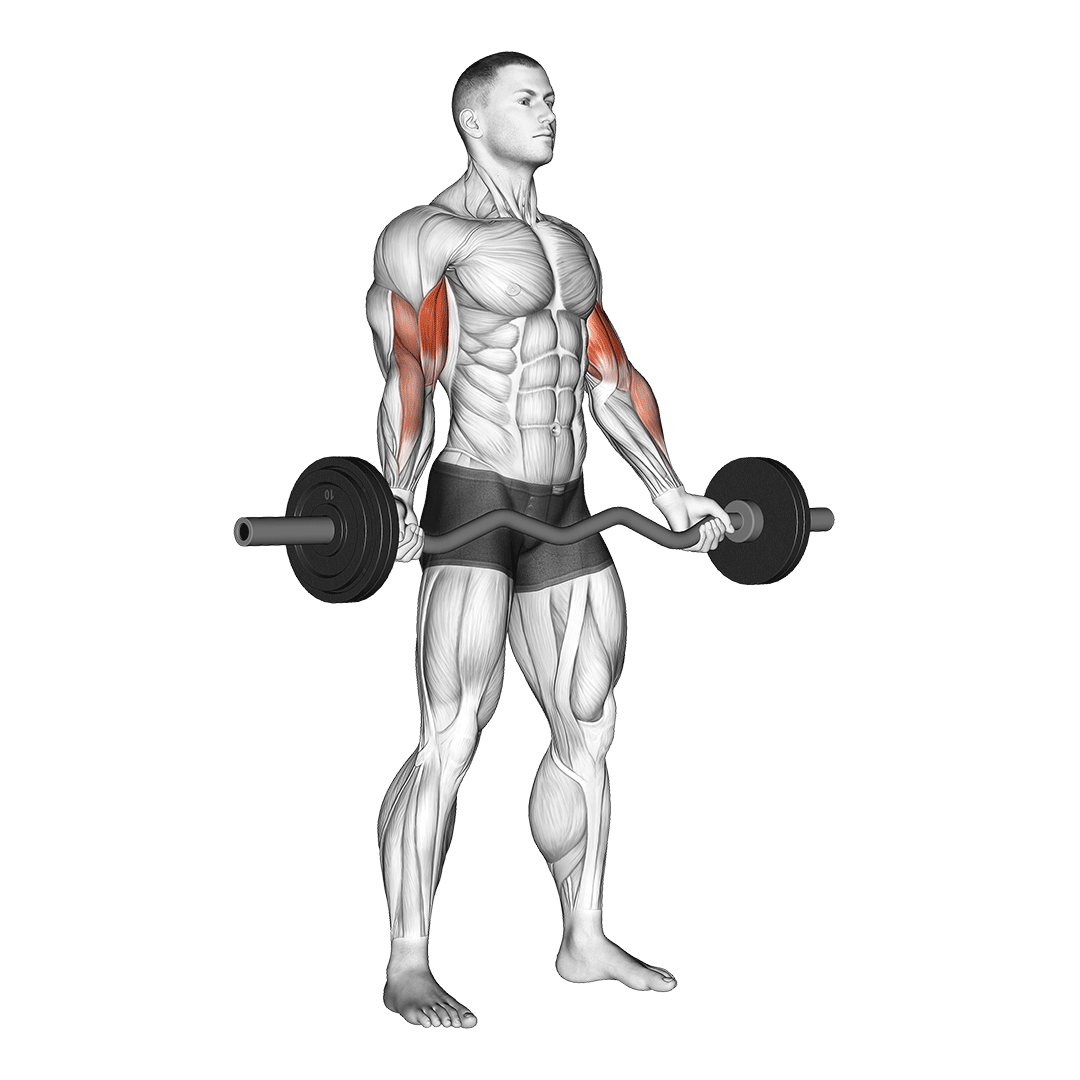
Unlike conventional barbells, the EZ-bar features curves along the length of the bar that allow for a more natural and comfortable wrist position to be maintained throughout the exercise. In all other aspects, however, the two wide grip curl variations are considered to be the same.
2. High Cable Curls
For a more machine-based sort of training stimulus, the high cable curl can act as a substitute to wide grip barbell curls without foregoing the focus on the inner head.
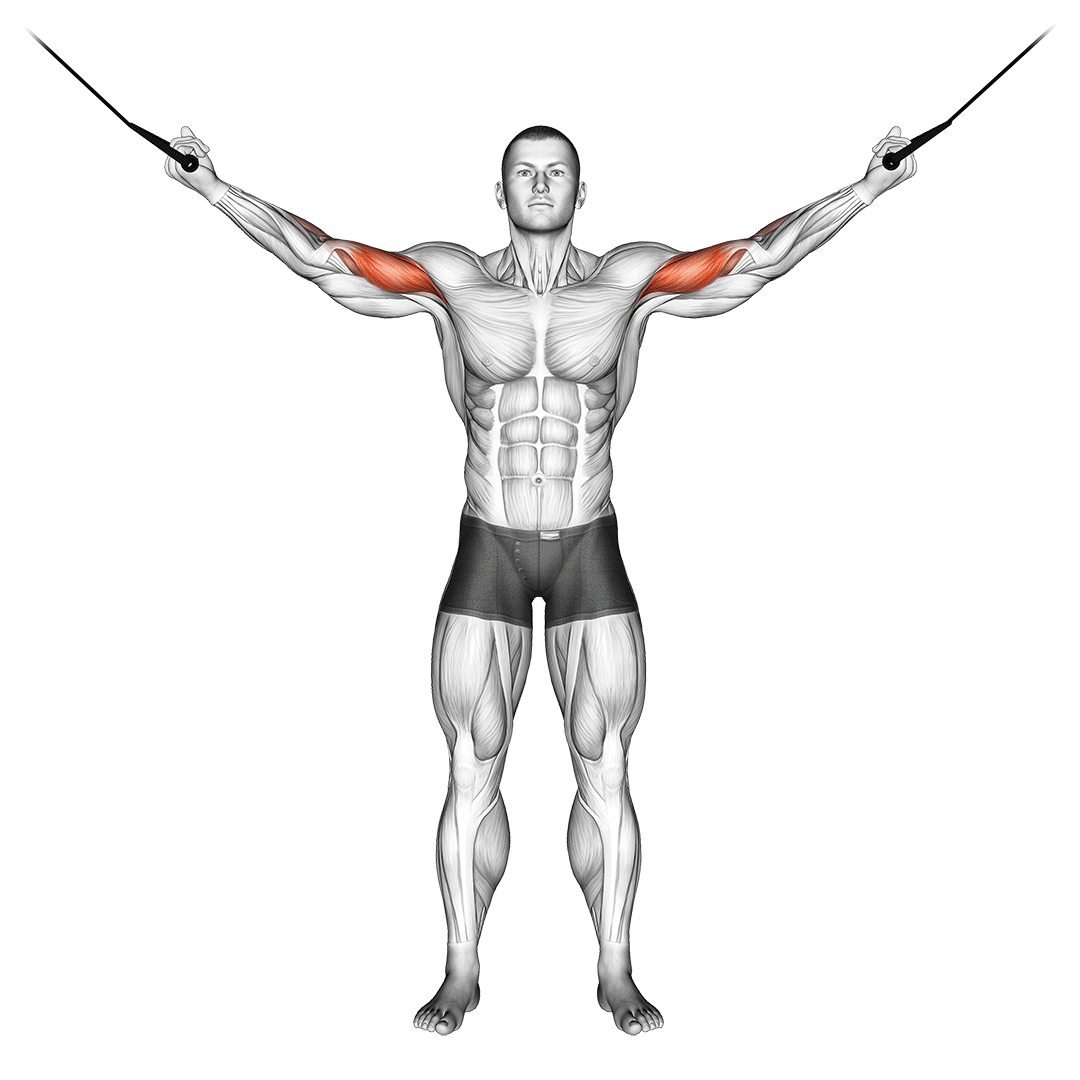
It is performed with a two-sided cable machine where, standing in the middle, the lifter will perform a bicep curl with their elbows out to the sides and parallel to the shoulders. This allows for significantly greater biceps recruitment despite a relatively shorter range of motion.
3. Lateral Bicep Curls
As a substitute to the wide grip barbell curl, lifters may wish to pick up a pair of dumbbells and instead perform lateral dumbbell curls.
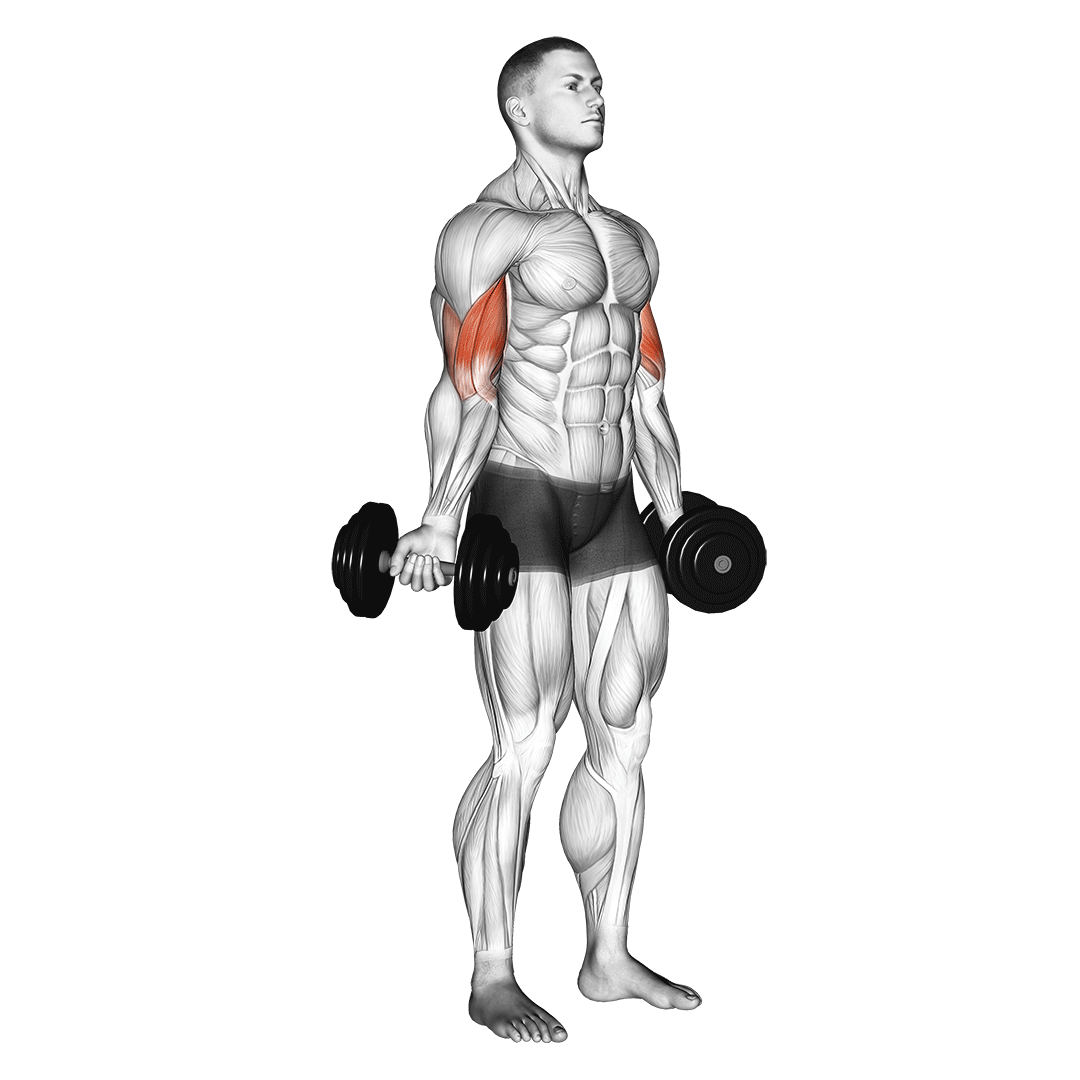
Like wide grip curls, lateral curls will involve the arms set at a wide angle so as to elicit greater inner bicep head contraction. This is taken a step further with the latter exercise, as the arms are set almost lateral to the torso and as such will feature an even greater level of inner head contraction.
Furthermore, lifters without access to an EZ-barbell may instead use dumbbells for lateral bicep curls, as both exercises place significantly less tension on the wrists and forearms.
Frequently Asked Questions (FAQ)
Are Wide Grip Curls Better?
In certain aspects - yes, wide grip curls can be better than other curl variations.
In terms of inner bicep head recruitment or shortened range of motion, there are few exercises that can compare to the wide grip curl.
However, wide grip curls may be less than optimal for the purposes of targeting the outer bicep head or maximizing time under tension, and as such should be programmed accordingly.
Which is Better, Close Grip or Wide Grip Barbell Curls?
Both wide grip and close grip barbell curls serve respective purposes within a training program. In certain cases, they may even be paired together so as to distribute an even amount of training volume on either head of the biceps brachii.
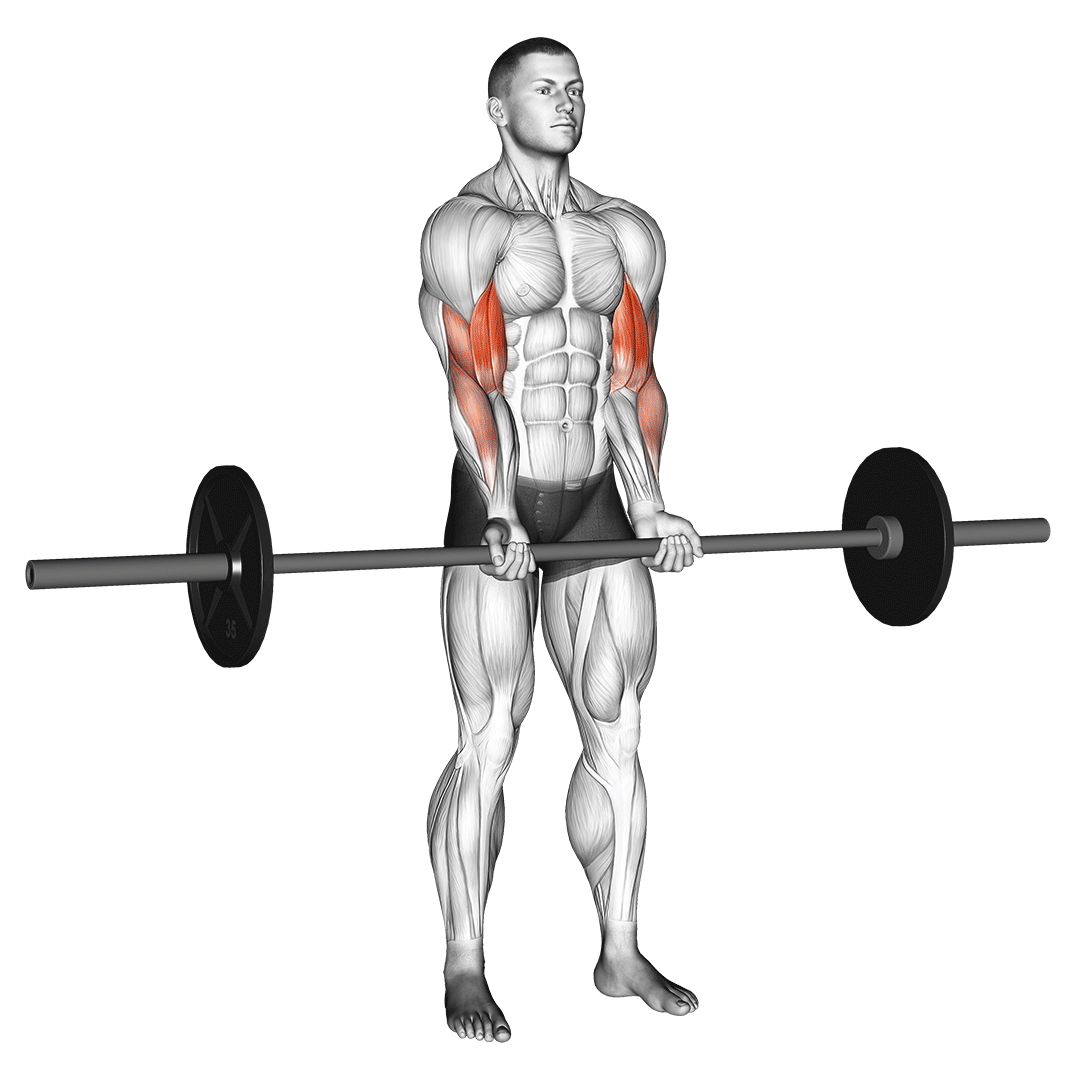
One should keep in mind that the greater focus on one side of the biceps is only an emphasis, meaning that there is still a significant level of recruitment on the opposite head of the muscle group as well.
In short; neither is better than the other, and they should be considered as two separate tools for building up biceps muscle mass.
Do Conventional Barbell Curls Work Both Heads (of the Biceps)?
Yes - conventional barbell curls are an isolation exercise that target both heads of the biceps brachii in equal measure, and are considered to be among the most simplistic and non-specific exercises available.
Lifters wishing to shift the focus of barbell curls more towards one section of the biceps can alter the width of their grip, with close grip curls targeting the outer head and wide grip curls targeting the inner head.
Final Thoughts
There is no doubt that the wide grip barbell curl is a highly effective biceps builder with a unique scope of specificity - but lifters should keep in mind that it should not be the sole source of biceps brachii training stimulus in their workout.
The wide grip barbell curl is most useful when paired with compound movements that place emphasis on the outer head of the biceps, such as rows or certain pull-up variations.
If you begin to experience pain or discomfort in the forearms and wrists at any point during the exercise, it is best to stop performing it and to seek out an alternative curling variation.
References
1. Marcolin G, Panizzolo FA, Petrone N, Moro T, Grigoletto D, Piccolo D, Paoli A. Differences in electromyographic activity of biceps brachii and brachioradialis while performing three variants of curl. PeerJ. 2018 Jul 13;6:e5165. doi: 10.7717/peerj.5165. PMID: 30013836; PMCID: PMC6047503.
2. Lusk, Hale & Russell (2005) Lusk SJ, Hale BD, Russell DM. Grip width and forearm orientation effects on muscle activity during the lat pull-down. Journal of Strength & Conditioning Research. 2005;24(7):1895–1900. doi: 10.1519/JSC.0b013e3181ddb0ab.

